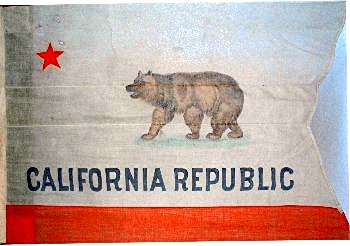pay per signature
Legislative Bill 367 sailed through Nebraska’s unicameral legislature today on a 42-0 vote. Without a single dissent, the legislation reverses the state’s seven-year ban on paying petition circulators according to the number of signatures they gather on a petition.
Sen. Mike Groene of North Platte, the bill’s author, declared that the Legislature and the people whad become locked in a “civil war” after voters passed term limits for State Senators more than a dozen years ago.
Groene, serving his first term, told fellow lawmakers, “It’s time for this body to call a truce.”
 Pete Peterson, Executive Director of the Davenport Institute for Public Engagement and Civic Leadership at Pepperdine University’s School of Public Policy, is the latest to join in the effort to convince California Gov. Jerry Brown to veto Senate Bill 168.
Pete Peterson, Executive Director of the Davenport Institute for Public Engagement and Civic Leadership at Pepperdine University’s School of Public Policy, is the latest to join in the effort to convince California Gov. Jerry Brown to veto Senate Bill 168.
Writing for Bay Area NBC’s “Prop Zero” blog, Joe Matthews joins the growing chorus of voices against Senate Bill 168:
Already a playground for rich people and groups, [under SB 168] the initiative process will be even more dominated by the very wealthy.
 An identical bill has was vetoed in 2006 and 2009 but that won’t stop state Sen. Corbett from attacking California petition proponents. The California Senate Elections and Constitutional Amendments Committee will hold a hearing Tuesday, March 15, on SB 168, an attempt to ban paying petition circulators by the signature. Such bans have been found unconstitutional in several states, and most recently a federal judge in Colorado found that state’s ban likely to be struck down.
An identical bill has was vetoed in 2006 and 2009 but that won’t stop state Sen. Corbett from attacking California petition proponents. The California Senate Elections and Constitutional Amendments Committee will hold a hearing Tuesday, March 15, on SB 168, an attempt to ban paying petition circulators by the signature. Such bans have been found unconstitutional in several states, and most recently a federal judge in Colorado found that state’s ban likely to be struck down.
A hearing was held this morning in the federal trial of Bernbeck v Gale. Arguments presented by Nebraska Attorney, David Domina will detail how restrictions placed on Nebraska’s initiative and referendum process have violated Kent Bernbeck’s First and Fourteenth Amendment rights.
In regard to the recall signature-gathering process against Mayor Jim Suttle: On election day, I was contacted by longtime friend, Paul Jacob, formerly head of the national term limit movement and fellow initiative and referendum advocate and supporter. He was asked to assess the struggling recall effort which had been utilizing an all-volunteer team of petition circulators.
Federal District Court Judge Philip Brimmer has put another nail in the coffin of the Colorado General Assembly’s attempt to silence the state’s voters. Back in June the judge issued a preliminary injunction against part of HB 1326 - which passed overwhelmingly in 2009 - that restricted how ballot initiative campaigns could pay their workers. Last week he followed with another order saying Colorado couldn’t prevent campaigns from using petition circulators from other states.
U.S. District Judge Philip Brimmer on Friday put a temporary hold on part of a controversial 2009 bill restricting, among other things, how and when voters can be asked to sign a petition. You can read the judge’s order here.
As the 26th Alaska Legislature wrapped up its 2010 session late Sunday night, making it harder for citizens to use the state’s already-restricted initiative process was at the front of lawmakers’ minds.
Citizens in Charge Foundation President Paul Jacob has some harsh words in the New York Times for new Oregon restrictions on the ballot initiative process:
Ballot Access News reports that California governor Arnold Schwarzenegger is likely to veto Senate Bill 34. The bill, which passed an Assembly committee yesterday, would ban paying petition circulators by the signature.
The Miami Herald is reporting that two bills that would have significantly altered Florida’s election law, including banning paying petition circulators by signature, is unlikely to pass this year. The legislative session is scheduled to end May 1.
The mayor of Tampa, FL wrote a letter to the governor urging him to veto an election reform bill that is working its way through the state legislature. She isn’t the first one in the state to critize the changes. At least three bills seek a host of election reforms including banning paying initiative petition signature collectors by the signature and forcing them to register with the state.